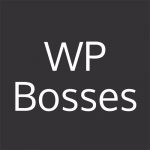To embrace the open source nature of WordCamps we’d like to share our operating budget with you so you can see the breakdown of costs, money in and money out.
The budget spreadsheet is based on a modified Google Sheets template supplied by WordCamp Central.
We ran the event management through Linux Australia who looked after event insurance, liability and finances (bank & invoicing).
Ticket sales were through CampTix and PayPal which is built into the WordCamp website template.
We operated with a 10% across-board contingency just in case anything unexpected happened.
The aim was to bring the budget in as close to break even as possible. We don’t plan to make profit on WordCamps.
Any losses would have been absorbed by Linux Australia and any profits are distributed by Linux Australia to future open source conferences in Australia also managed by Linux Australia.
We had additional sheets/tabs for Vendors, Sponsors, After Party, Schedule, Volunteers, Speakers and Swag to help manage numbers, ordering, scheduling, catering etc. They contain some private information so we’re not sharing those.
PDF: WordCamp Sydney 2016 Budget
On the budget in the top right are three cost scenarios, Low, Medium and High.
Low cost is based on money in just from ticket sales.
Medium cost is with additional food, water and AV (audio & visual).
High cost is with additional swag, after party and speakers dinner.
The Low cost scenario is based on the minimum we needed to pay to bring a WordCamp to life; venue, insurance, and ticket fees.
Medium and High cost scenarios can only be achieved with the addition of sponsorship money and that’s what makes for a great memorable conference.
We truly could not bring an event of this scale to you without the money donated from our kind sponsors.
If you’re interested in organising a WordCamp in your local area and don’t know where to start, hopefully this budget will give you a starting place.
Feel free to get in contact with us if you have any specific budget questions.
#WCSyd Team
